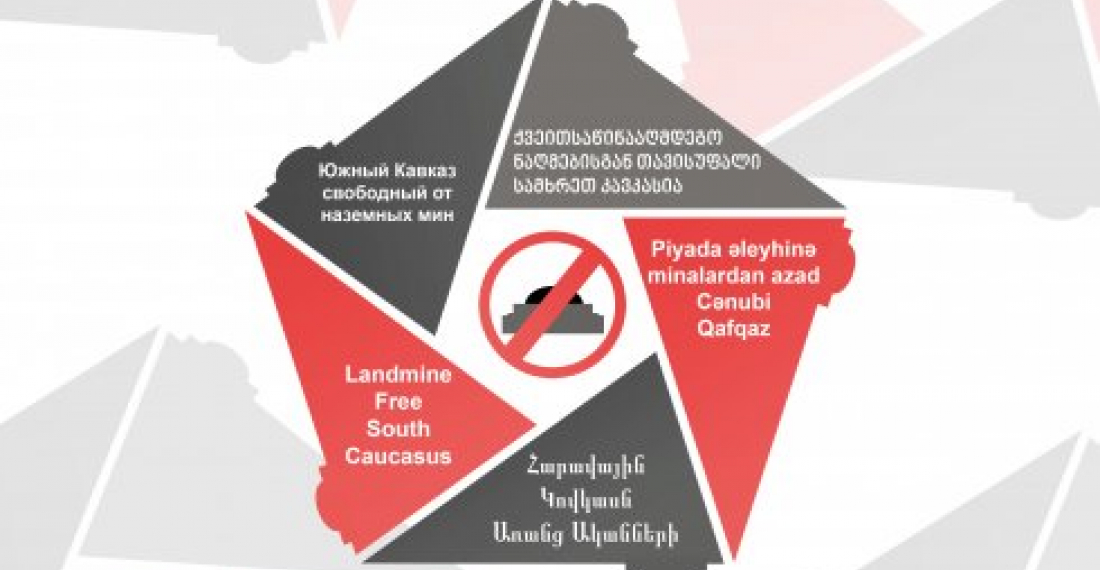В этом году впервые на Южном Кавказе 4 апреля будет отмечаться Международный день информирования о минной опасности в рамках общерегиональной информационной кампании под лозунгом «Южный Кавказ, свободный от наземных мин». В рамках кампании, которая пройдет с 4 по 10 апреля, будут посвящены мероприятия, проводимым в ряде городов и районов региона, и будет включать информационные материалы на армянском, азербайджанском, грузинском, русском и английском языках.
Согласно консервативным оценкам, за последние тридцать лет на Южном Кавказе были убиты или ранены в результате подрыва наземных мин или других неразорвавшихся боеприпасов более пяти тысяч человек. Эта проблема далека от разрешения, несмотря на ряд успешных усилий по расчистке больших территорий, особенно вблизи городских центров.
Наземные мины убивают и калечат без разбора; большинство жертв - невинные гражданские лица, включая детей. В своем отчете за 2018 год базирующаяся в Женеве организация Landmine and Cluster Munitions Monitor (Монитор наземных мин и кассетных боеприпасов) сообщила, что 87% глобальных жертв от наземных мин и неразорвавшихся боеприпасов - это не военные цели, а гражданские лица, причем 47% из них - дети. Там, где зафиксированы данные о жертвах с Южного Кавказа, большинство жертв также были гражданскими лицами. Эта проблема оказывает сильное влияние не только на тех, кто непосредственно затронут ею, но и на их семья, друзей и общества.
На Южном Кавказе наземные мины не только приводят к человеческим страданиям, но и во многих случаях препятствуют экономическому развитию. Среди прочего, они ограничивают возделывание сельскохозяйственных угодий и животноводство, что ограничивает развитие экономики.
В период с 4 по 10 апреля 2019 года кампания «ЮЖНЫЙ КАВКАЗ СВОБОДНЫЙ ОТ НАЗЕМНЫХ МИН» будет стимулировать правительства, сторонников общественного мнения и граждан всего региона активизировать свои усилия по очистке Южного Кавказа от бедствий, связанных с наземными минами и неразорвавшимися боеприпасами. Кампания будет распространять информацию о рисках, связанных с наземными минами, для детей, молодежи и других уязвимых групп, особенно тех, кто живет в районах, которые все еще заминированы. С другой стороны, кампания также отметит результаты той хорошей работы, которая была проделана и все еще выполняется сотнями преданных своему делу специалистами по всему региону, которые ежедневно рискуют своей жизнью, чтобы разминировать мины и другие неразорвавшиеся боеприпасы, чтобы сделать Южный Кавказ безопасным для их и будущих поколений.
Ряд национальных и международных организаций принимают участие в кампании «Южный Кавказ, свободный от наземных мин», в рамках инициативы, поддерживаемой Европейским союзом.
Информация о кампании «Южный Кавказ свободный от наземных мин» доступна в социальных сетях под хэштегом #landminefreeSC. Для получения дополнительной информации вы можете обратиться в координационный офис кампании «ЮЖНЫЙ КАВКАЗ СВОБОДНЫЙ ОТ НАЗЕМНЫХ МИН» по адресу office@links-dar.org
Вы можете прочитать и скачать пресс-релиз кампании на армянском языке здесь
Вы можете прочитать и скачать пресс-релиз кампании на азербайджанском языке здесь
Вы можете прочитать и скачать пресс-релиз кампании на грузинском языке здесь
Вы можете прочитать и скачать пресс-релиз кампании на русском языке здесь
Вы можете прочитать и скачать пресс-релиз кампании на английском языке здесь






